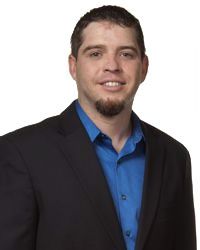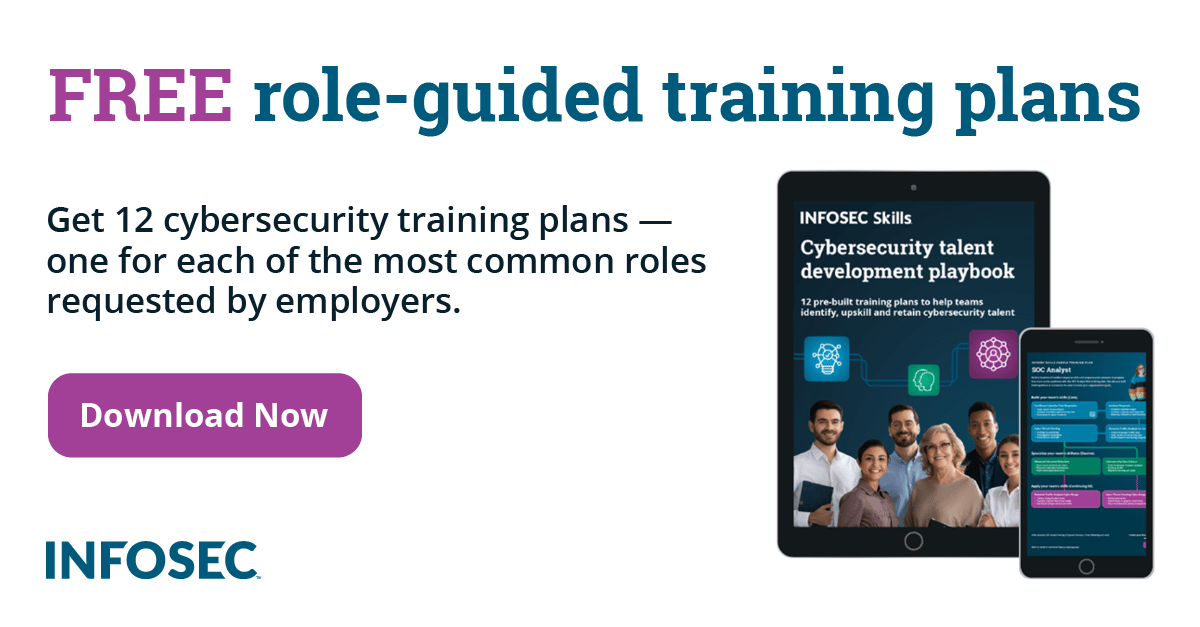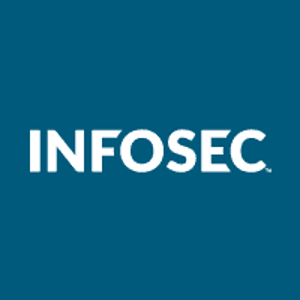Interview: Cortney Thompson, Chief Technology Officer at Green House Data
 Cortney Thompson is the Chief Technology Officer at Green House Data leading the strategic direction of the company's cloud hosting and colocation facilities. Before joining Green House Data, Cortney founded C&B Consulting, a technology firm based in Cheyenne that was acquired by Wyoming Professional Services, Inc. (WYOPS), a professional IT services firm, where he later served as CEO, growing the company to double its revenue and size four years straight.
Cortney Thompson is the Chief Technology Officer at Green House Data leading the strategic direction of the company's cloud hosting and colocation facilities. Before joining Green House Data, Cortney founded C&B Consulting, a technology firm based in Cheyenne that was acquired by Wyoming Professional Services, Inc. (WYOPS), a professional IT services firm, where he later served as CEO, growing the company to double its revenue and size four years straight.
Cortney is a networking expert, able to design, install and maintain multiple 99.999% reliable carrier-class networks. He holds certifications from Microsoft, Cisco, Sonicwall, Lucent, CFOS (fiber optics), Low Voltage, and CWNP (wireless). In addition, he is a member of NSF International's Committee for Environmental Server Standards.

What should you learn next?
1. You're not only the CTO of Green House Data, but also the founder. What was the rationale for starting up the company?
Basically, back in 2007, the "cloud" was barely starting to hit the mainstream consciousness. We started Green House Data because we saw a gap in the IT industry that we could service with this impending change in the industry. There was and still is a need for data centers that was outpacing demand.
With our always-on kind of world, mobile devices proliferating, and more and more industries turning to hosted services, the need for centralized mass computing was evident.
2. What does your role as chief technology officer at Green House Data entail?
I like to joke that I keep the ones and zeros floating through the data center at all times. My role is really a hybrid of owner/founder and CTO, so I need to wear multiple hats. Despite Green House Data's rapid growth, we are still a small company as far as our high-touch approach to customers, so I need to handle everything from the business side of things, working with the CEO and VPs on the direction of the company and strategy, to the technology perspective, working with our Director of Data Centers to keep things up and running smoothly, to even HR at the end of the day.
3. What specific hard and soft skills do you require to do your job?
I need to be knowledgeable about the hardware and software side of the data center, so certifications and experiences I've been able to have over my career have been useful. Security was a heavy focus in the past and of course still in the present, as data is moving around between sites and organizations we need to keep it that much more secure. People entrust us to keep their data safe, both the private sector and government organizations. So physical and digital security are at the forefront of our daily operations.
As far as physical data center factors, as the company has grown from one small data center to thousands of square feet of white space, we've had to work through and hone our skills in thermal dynamics and electric theory. I also hold certifications in fiber optics and wireless networking, as well as hardware certifications from vendors.
On the software side I fairly regularly certify for VMware and various security vendors and protocols. In general I'm a proponent of having certifications. I think it proves you can focus on a goal and achieve it.
When you walk into a job, you only have your word. Industry certifications mean they don't have to take your word for it. On the other hand though, there are many folks who have plenty of knowledge and experience without certifications, specifically in security world.
4. If a prospective client is on the lookout for cloud hosting and colocation facilities, why should they choose Green House Data over other service providers?
We're a "boutique-style" data center and we provide service that is as hands-on or hands-off as the customer needs. Many have leveraged our engineering talent or supplemental staffing. Clients that need a higher uptime, need a higher touch, are why I feel people choose green house data.
We also have world-class infrastructure, uptime guarantees, and a wide array of service offerings, from bare metal or powered shells up to fully managed virtual desktops.
We can provide a very well-rounded product, and we offer full compliance with rigorous testing for standards like HIPAA, SSAE 16 Type II, and more.
5. How does Green House Data ensure that customers are protected from the wide array of cyber security threats that seemingly lurk around every corner of the online environment?
Without giving out our crypto keys, we take security very seriously. It is always in the forefront of every procedure. When we design any infrastructure, the first thing is how will we keep this secure?
We go to the Nth degree to keep client data secure from digital and security standpoint. That includes physical and digital security requirements and staying active with most recent threats as new threats turn over in days or even hours.
Our engineers regularly converse internally about new threats, attack vectors, and whether they could impact our environment.
Specific methods include all the usual suspects: firewalling, antivirus, antimalware, network monitoring, advanced persistent threat reports, intrusion detection, rigorous penetration testing on ourselves. Our staff is encouraged to run scans, test security, and try to get anyone to break it.
6. What is the value proposition behind signing up with a service provider like Green House Data for cloud hosting and colocation facilities over doing everything in-house?
A hosting provider can quite frankly provide better reliability and security because that's our job. It's all we do, all day. When you rent infrastructure, you're also getting the latest and greatest in terms of power, cooling, connectivity and other support systems. While these factors are paid for by your rent, you don't have to make that massive capital investment. It shifts your IT expenses from capital spending to operational spending, which also means each department can roll servers and hosted services into their operating budgets instead of making purchase requisitions.
7. One of the selling points your company uses to promote its offer is that it is environmentally responsible. What exactly does this mean, and is it a differentiator that resonates with clients?
All of our data centers are designed to be extremely operationally efficient, especially with regards to energy consumption. Our headquarters, which we built from the ground up last year, has an average Power Usage Effectiveness rating of 1.14. What that means is for every single watt consumed by the IT equipment, only 0.14 watts is consumed by cooling and other support equipment. The industry average PUE is closer to 1.7 or 1.8.
We can achieve this with free cooling, which is using filtered outside air along with a higher data center floor operating temperature, plus efficient equipment, containing our hot and cold aisles with pods, and other factors.
Green House Data also purchases renewable energy credits for over 100% of our energy use across every facility and office. These credits go directly towards the development of new renewable energy sources, specifically wind farms.
We've found that customers love the energy savings as it lowers their monthly costs for infrastructure with us. Depending on their current systems, they could save up to 50% just because of our energy efficiency. However, when they are shopping around, they've reported the green aspect as a nice-to-have. It's not a deciding factor.
8. Green House Data also offers 100% service level agreements. How can your company guarantee 100% uptime?
We like to internally promote "the three Rs" – redundancy, reliability, and robustness. Everything from the cabinet to the cooling has multiple levels of redundancy, and the entire data center is concurrently maintainable, which means that we can take any element, like a PDU or a cooling unit, offline for maintenance and the systems are all still 100% operational. Every system is at least N+1 or greater configuration.
Then we get into the Green House Data secret sauce, which is the services and world-class engineers behind our infrastructure, allowing us to serve our products/systems without losing connectivity.
As an example, one of our firewall clusters has individual nodes rebooted all the time to do updates and such, but the data flowing through it is monitored and it has been up for 6 years, 159 days.
9. In addition to your job at Green House Data, you're also a member of NSF International's Committee for Environmental Server Standards. What does this position entail?
We're working on an industry standards document for server manufacturers. Specifically, I am attached to energy efficiency, energy conversion, and physical packaging. We do a lot of brainstorming and discussing how to make the server process more environmentally friendly. In the end this helps break trail for the industry as far as laying a base level groundwork, but it also is dictating was shows up in our own data centers, so it's helping to make our own footprint a bit greener down the line.
10. What sort of advice would you give to a college or university student looking for an entry-level position to get his or her IT career started?
Learn as much as you can. Go in with a specific goal in mind. Pick systems, networking, security—anything specific that makes you passionate about tech and follow that. There are roles and jobs focused in these areas. If you're in security for example, you're going to be up all night and constantly on alert or responding to new threats. You need to be passionate to not get burned out.










